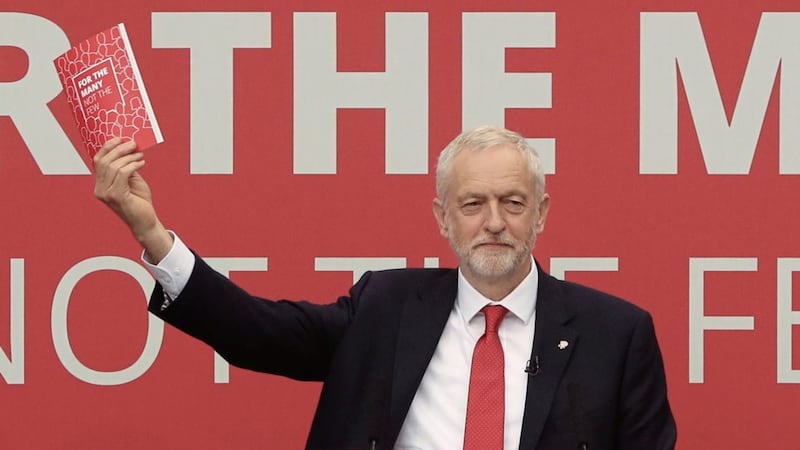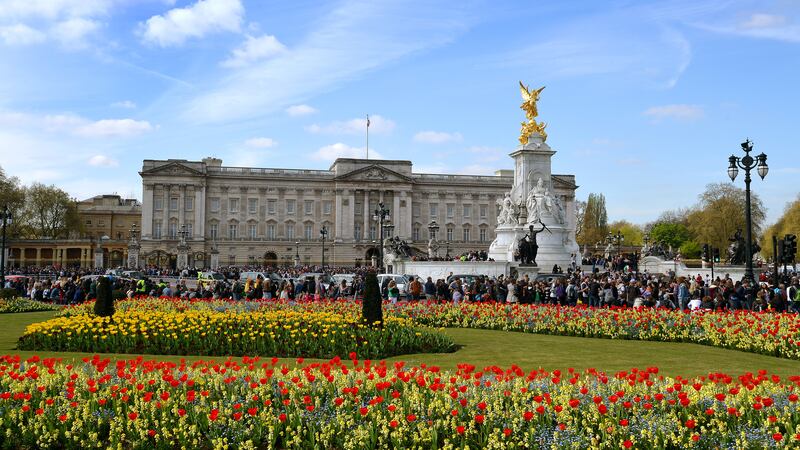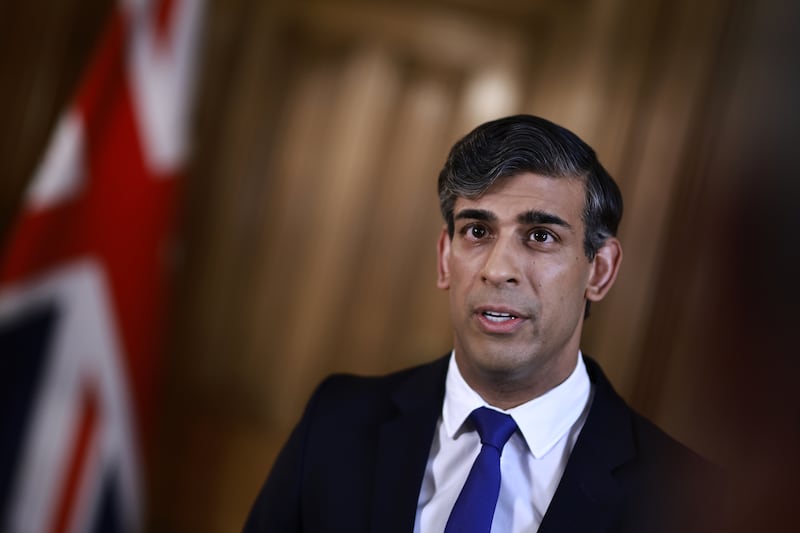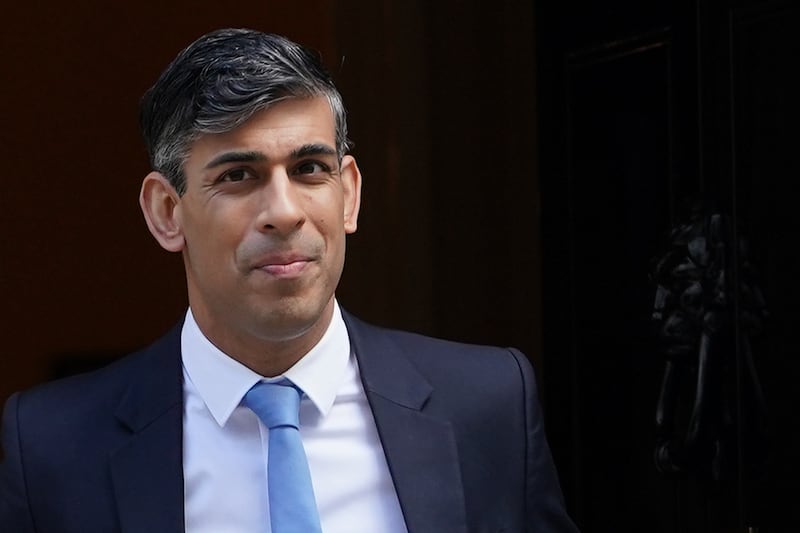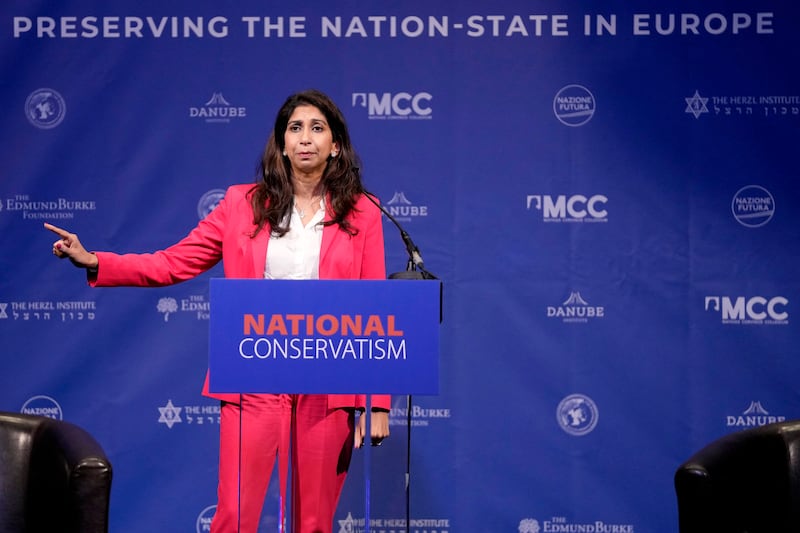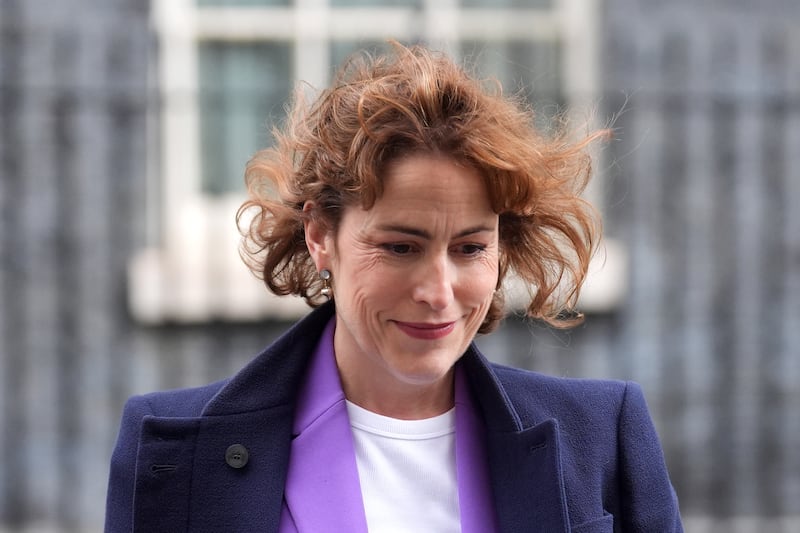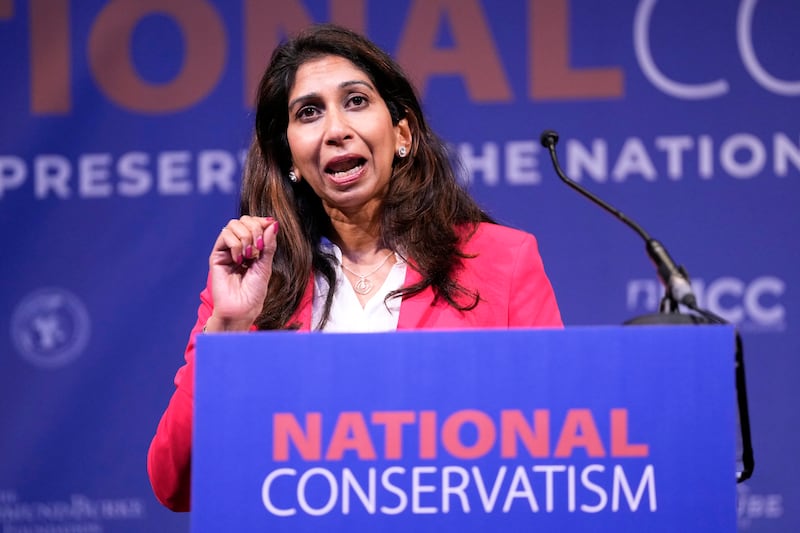A Labour government would increase taxes by almost £50bn and borrow £25bn a year to pay for "a fairer, more prosperous society for the many, not just the few", Jeremy Corbyn has announced.
The party's manifesto for the June 8 Westminster election envisages extra spending totalling £48.6bn to pay for priorities like scrapping university tuition fees, raising the minimum wage to £10 an hour and pumping £6 billion a year into schools and £7bn into health and social care.
Water, energy, railways and the Royal Mail would be nationalised, while a new National Transformation Fund would borrow £250 billion over 10 years to pay for infrastructure improvements including the extension of the HS2 high-speed line to Scotland and a Crossrail for the north of Britain linking major northern cities.
While guaranteeing no hikes in VAT, personal national insurance contributions or income tax for the bulk of workers, Labour would raise £6.4bn from the top 5 per cent by lowering the threshold for the 45p rate of income tax from £150,000 to £80,000 and introducing a new 50p rate for earnings above £123,000.
Big business would pay an additional £19.4bn through a hike in corporation tax from 19 per cent to 26 per cent by 2020/21.
Companies with employees earning over £330,000 would face an "excessive pay levy" forecast to raise £1.3bn a year.
Other revenue-raising plans include a "Robin Hood tax" extension of stamp duty onto derivative trading, designed to bring in £5.6bn and the imposition of VAT on private school fees, estimated at £1.6bn.
Expensive pledges include the £11.2bn abolition of tuition fees, £5.3bn for childcare and £4bn to lift the Conservatives' one per cent cap on public sector pay increases.
Launching the 124-page document in Bradford, Mr Corbyn said: "This is a programme of hope.
"The Tory campaign by contrast is built on one word, fear.
"Our proposals are of hope for the many all over this country and I am very proud to present our manifesto for the many, not the few."
Theresa May said the proposals did not "add up".
Speaking during a campaign visit to a factory in Stoke-on-Trent, the British prime minister said: "If you look across that manifesto, the question isn't what people are promising but can you believe people will deliver what they are promising?
"You can only fund our National Health Service, you can only have the funding that we have made available in relation to the nation's child care if you have got that strong economy.
"What we see from Labour's proposals today is they don't add up and their nonsensical economic policies mean that it is ordinary working families that would pay the price of Labour's coalition of chaos."
The independent Institute for Fiscal Studies think tank said Labour's programme would take the tax burden to its highest level for around 70 years.
Business voiced anxieties, with the director general of the British Chambers of Commerce warning higher personal and business taxes would give bosses "real cause for concern".
Although the multi-billion-pound nationalisation of key industries would not officially increase the deficit, because government accounts would show an equivalent increase in state assets, Institute of Directors director general Stephen Martin warned "the costs would be staggering, the benefits unclear, and the related tax rises would make the UK a less competitive economy".
TUC general secretary Frances O'Grady hailed the package as "an impressive set of pledges from the Labour Party", adding: "Their commitments to improve workers' rights and drive up wages would make a real difference to millions of workers."
Key pledges in the manifesto include:
:: Bringing private rail companies back into public ownership as their franchises expire
:: A new network of regional, publicly owned water companies and a publicly owned, decentralised energy system
:: Hiring 10,000 new police officers and 3,000 new firefighters
:: New Brexit negotiating priorities focused on retaining the benefits of the single market and customs union
:: Creation of a national education service
:: Extension of 30 hours a week free childcare to two-year-olds
:: Ban on zero-hours contracts, and maximum pay ratios of 20:1 in the public sector
:: Construction of at least 100,000 council and housing association homes a year by the end of the next parliament
:: Spending of £4 billion on more generous welfare benefits, including scrapping the so-called "bedroom tax", although there is no promise to reverse planned changes
:: Guarantee for the triple-lock protection for the state pension
:: Ban on fracking
:: Raising £3.7 billion by reversing Conservative "tax giveaways" on levies including capital gains and inheritance tax
After an intense internal battle over Mr Corbyn's long-standing opposition to nuclear weapons, the manifesto confirms Labour supports the renewal of Britain's Trident deterrent.
It omits a statement, apparently included in last week's leaked draft to reflect the leader's misgivings, that a Labour prime minister would be "extremely cautious" about using weapons of mass destruction.
Mr Corbyn insisted Labour's plans were fully costed, telling activists: "We can embark on this ambitious programme without jeopardising our national finances."
He told the BBC it was not possible to estimate the cost of proposed nationalisations "because we don't know what the share price would be at the time that we do it".
Returning rail to public hands would be cost-neutral as it would simply involve declining to renew franchises when they run out, he said.
In the case of energy, Labour would not nationalise the existing Big Six companies but would take the National Grid into public ownership and provide facilities for the establishment of regional companies along the lines of Nottingham's council-backed not-for-profit Robin Hood Energy.
The manifesto commits the party to a Fiscal Credibility Rule, requiring a Labour government to eliminate the deficit on day-to-day spending within five years and ensure debt is lower at the end of the next parliament but providing flexibility to borrow for investment.
It says: "We will measure our economic success not by the number of billionaires, but by the ability of our people to live richer lives."
Mrs May said: "I think the people who should be worried about the Labour manifesto are the ordinary working families who will find themselves paying the price for the spending commitments that Jeremy Corbyn and the Labour Party has put forward.
"I think the sums have probably been dreamt up by Diane Abbott and what we see is actually these policies, they are not sensible economic policies, would actually damage our economy."
Mr Corbyn held up a copy of the manifesto after he spoke to around 500 people in in Huddersfield, West Yorkshire.
He admitted he had left his copy on Labour's battle bus as he acknowledged cheers from the crowd gathered in Beaumont Park.
He borrowed one being brandished by the party's local candidate, Thelma Walker.
Mr Corbyn was speaking in the Colne Valley constituency, which was held in 2015 by Tory Jason McCartney with a 5,378 majority.
